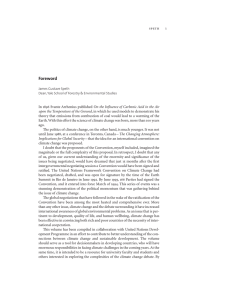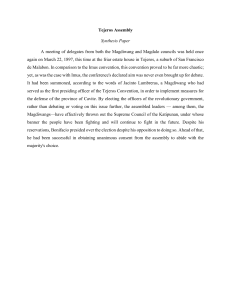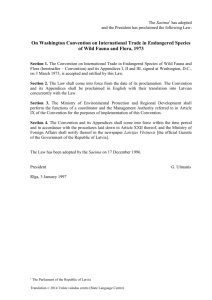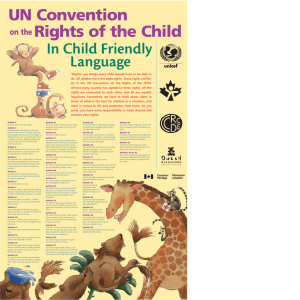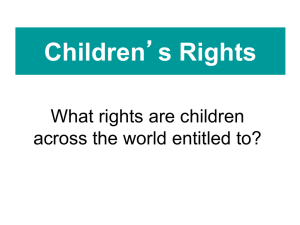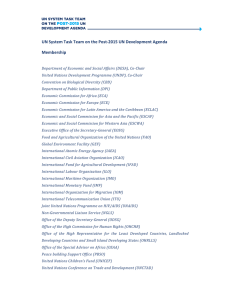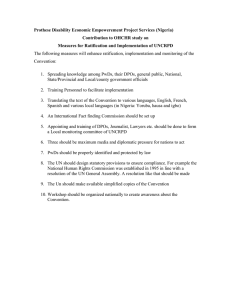UNCRC Time Line
advertisement
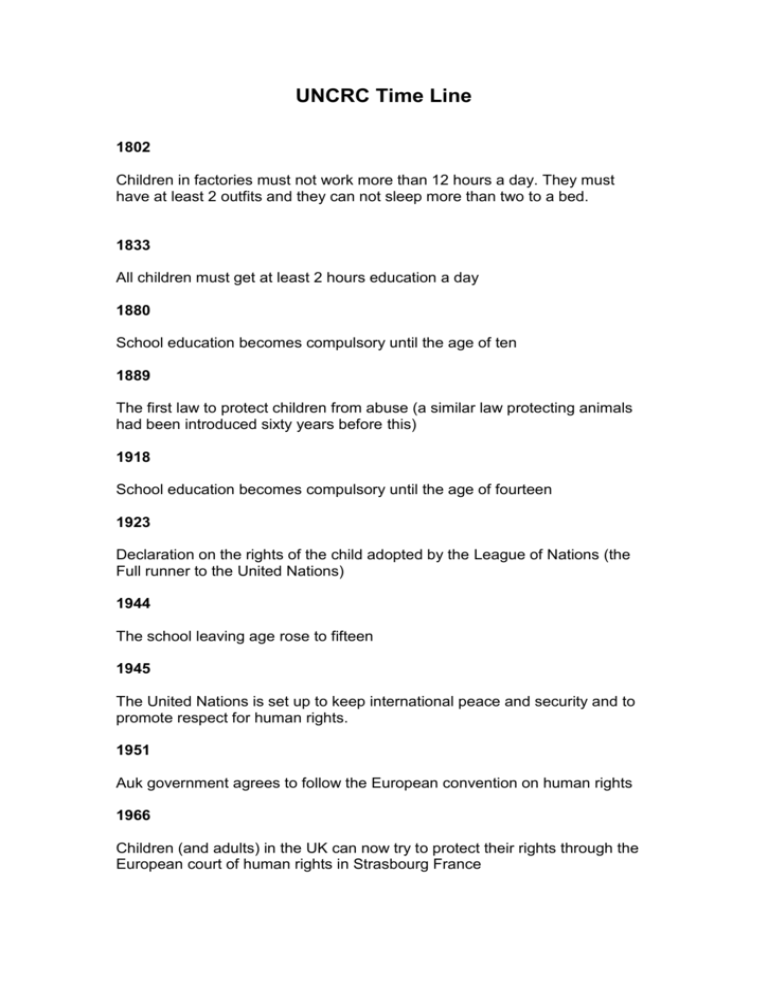
UNCRC Time Line 1802 Children in factories must not work more than 12 hours a day. They must have at least 2 outfits and they can not sleep more than two to a bed. 1833 All children must get at least 2 hours education a day 1880 School education becomes compulsory until the age of ten 1889 The first law to protect children from abuse (a similar law protecting animals had been introduced sixty years before this) 1918 School education becomes compulsory until the age of fourteen 1923 Declaration on the rights of the child adopted by the League of Nations (the Full runner to the United Nations) 1944 The school leaving age rose to fifteen 1945 The United Nations is set up to keep international peace and security and to promote respect for human rights. 1951 Auk government agrees to follow the European convention on human rights 1966 Children (and adults) in the UK can now try to protect their rights through the European court of human rights in Strasbourg France 1973 The school leaving ages is raised to sixteen 1975 Social workers are given a new duty, to take seriously the wishes and feelings of children in care. 1979 Poland suggests there should be a new human rights treaty just for children 1989 Convention on the Rights of the Child agreed by the United Nations (the idea was first suggested by Poland in 1979) 1991 UK government agrees to follow the UN convention on the rights of the child (with some reservations) and the children’s rights alliance for England is set up. 1998 Human Rights act makes it easier for children (and adults) to protect their rights under the European convention of human rights. 2002 Second examination of the UK by the UN committee on the rights of the child (the first took place in 1995) The Un makes 78 recommendations for actions. 2005 Professor Sir Al Aynsley- Green is appointed as England’s first children’s commissioner. 2006 A law is passed to set up the equality and human rights commission: a powerful body that promotes and protects human rights. 2008 The third examination of the UK by the UN committee on the rights of the child the UN makes 124 recommendations about where the government must better protect children’s human rights.
